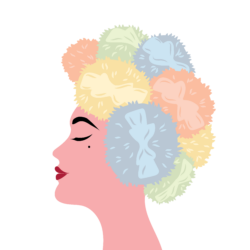Pain shopping isn’t just limited to social media stalking or consuming distressing news. It can also manifest in our personal beauty routines and self-perception, leading us to constantly search for flaws and reasons to criticize ourselves.
The Cycle of Self-Criticism
Imagine someone standing in front of the mirror, scrutinizing every detail of their face and body. Instead of appreciating their unique features, they focus on perceived imperfections: a pimple, a wrinkle, a stray hair. This act of finding flaws, over and over again, is a form of pain shopping within the realm of personal beauty.

Equating Pain Shopping to Personal Beauty
Mirror Gazing:
- Flaw Hunting: Spending excessive time examining one’s appearance in the mirror, highlighting every perceived imperfection and feeling worse with each discovery.
- Comparison: Comparing oneself to idealized beauty standards or edited images on social media, leading to feelings of inadequacy and self-doubt.
Social Media and Beauty Standards:
- Influencer Envy: Following beauty influencers and comparing oneself to their often unrealistic portrayals, focusing on how one falls short of these standards.
- Before and After: Obsessively looking at transformation photos and feeling disheartened about one’s progress or natural appearance. At F.A.C.E. Makeup Artistry, I don’t post before and after makeup photos on our website.


Product and Procedure Obsession:
- Constant Change: Continuously buying new beauty products or considering cosmetic procedures in the hope of achieving flawlessness, only to find new flaws to fixate on.
Consequences
- Emotional Toll: Continuous self-criticism can lead to decreased self-esteem, heightened anxiety, and depression.
- Impeded Self-Love: The relentless search for imperfections prevents individuals from appreciating their natural beauty and uniqueness.


Breaking the Cycle
- Awareness: Recognize the behavior and its impact on emotional well-being.
- Self-Care: Shift the focus to self-care routines that promote positivity and self-love rather than criticism.
- Support: Engage with supportive communities or seek professional help to address underlying insecurities.
Just as pain shopping in social contexts keeps us trapped in a cycle of emotional distress, pain shopping in personal beauty traps us in a relentless search for flaws. By understanding this behavior and actively working to change it, we can move towards a healthier, more positive relationship with our self-image. Recognize the unique beauty in your features, practice self-compassion, and break free from the cycle of self-criticism to embrace a more confident and empowered version of yourself.
Photos: Imagine Images Photo

